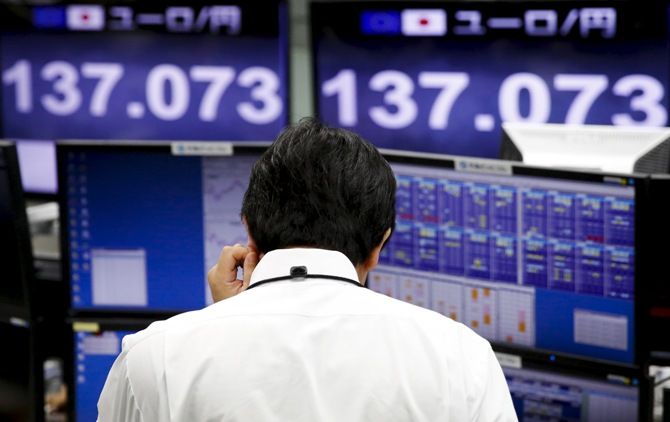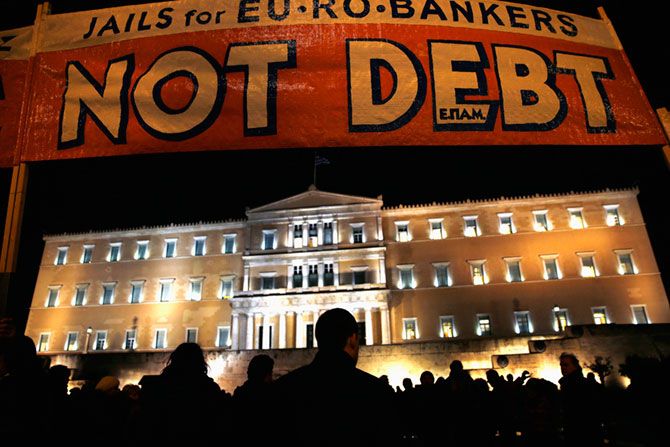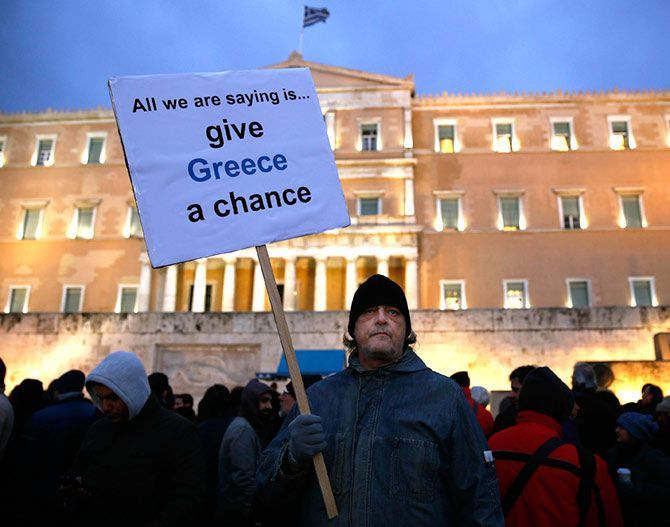 | « Back to article | Print this article |

Greece's debt-to-GDP ratio surged from 109 per cent in 2008 to 146 per cent in 2010.
A small country that accounts for only two per cent of the Euro zone's GDP is making the world get the jitters.
If Greece is unable to pay euro 1.5 billion to International Monetary Fund by Tuesday there could be a chain of events ultimately leading to that country's exit from the Euro zone.
A few things you need to know about the crisis:

How did the crisis begin?
In the year 2009, when the global economy was still dealing with the fallout of the global economic slowdown of 2008, Greece announced it had been understating the actual extent of its deficit burden.
This set off alarm bells; many questioned the soundness of Greece's finances and doubted its ability to pay back its debt.
Greece's debt-to-GDP ratio surged from 109 per cent in 2008 to 146 per cent in 2010. Following this, the country was downgraded to junk bond status, which cut off its access to bond markets.

Investors panicked and turned their attention to other indebted economies, notably Italy, Spain and France.
What was the bailout plan?
To prevent the crisis from escalating, IMF, the European Central Bank and European Commission -- nicknamed the troika -- organised funds to bail out the country.
The first bailout plan comprised a loan of euro 110 billion.
But this was not enough, so a second package of euro 130 billion was approved.
However, this was subject to certain conditions.
These centred on implementation of severe austerity measures to cut down government debt, structural reforms to propel growth and privatisation of government assets to bring the much-needed revenue and improve efficiency.

Was there public support for the measures?
The austerity measures were widely unpopular in Greece.
In December 2014, Greek parliament called for a premature election. The central issue during the election was the austerity measures imposed by the troika.
The new government that came to power refused to accept the terms of the agreement.
The political uncertainty led to a suspension of the remaining tranche of aid, unless Greece accepted the original terms of the bailout or mutually reached an agreement with its public creditors.
A negotiation between the parties failed to end the impasse.

What are the likely scenarios?
If the parties are able to arrive at some sort of a deal, it will probably lead to a strengthening of the euro and a relief rally across equities.
But if the talks collapse, it increases the probability of a 'Grexit'.
This will lead to volatility across debt, equity and currency markets, and lead portfolio investors to reassess their positions.
A default could lead to flight to quality in the bond market, towards US Treasuries. This would strengthen the dollar against major currencies.
If Greece defaults on its debt, it could also be locked out of the international credit market and be forced to savagely cut government expenditure. This would have an adverse impact on growth and could increase unemployment.
While a default would mean that creditors, especially European banks, would have to take a hit, some analysts argue care has been taken over the past few years to insulate other European countries and the European banking system from the risks of an eventual Greek default.

But it is difficult to predict how markets and investors will react.
A withdrawal from the European Union will mean Greece will have to reintroduce its old currency, Drachma, likely to be greatly devalued.
A devalued currency will boost exports, spurring growth, but the flip side is that the import bill will rise.
A devalued currency will also increase Greece's debt burden, which will still be denominated in the euro.